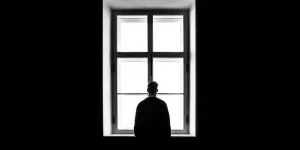Men vs. Women: Understanding Depression’s Unique Faces
Category: Depression // Men's Mental Health
Discover the distinctive expressions of depression in men and women. Explore how gender shapes the experience of this silent battle. Start understanding today.

Topic Of Discussion
Depression, the silent storm that can cast a shadow over anyone’s life, knows no boundaries of gender. Yet, it often wears different masks in men and women, making the experience unique and complex for each. In this blog post, we embark on a journey of understanding, comparing, and contrasting depression in men and women. By delving into these distinct perspectives, we aim to shed light on the shared struggles and differences between genders when facing the enigmatic force of depression.
Depression in Men vs. Women: A Comparative Perspective
Recognizing the Common Signs: Depression shares common signs across genders, but it often manifests differently:
- Men: In men, depression may be concealed behind a mask of irritability, anger, or emotional outbursts, often disguising the underlying emotional pain. This “masked depression” can lead to relationship conflicts and difficulty identifying their emotional struggles.
- Irritability and Anger: Rather than admitting to feelings of sadness, men might display heightened irritability, frequent anger, or outbursts of frustration. These emotional expressions serve as a shield, masking the underlying pain and sorrow.
- Physical Complaints: Men might manifest their depression through unexplained physical symptoms, such as persistent headaches, digestive problems, or chronic fatigue. These somatic complaints can often be traced back to emotional distress.
- Social Withdrawal: Instead of seeking emotional support, men frequently withdraw from social interactions, becoming emotionally distant. This withdrawal can further isolate them from potential sources of help and support.
- Women: Similarly, women also experience depression uniquely, with some common signs that may include:
- Persistent Sadness: Women are more likely to express sadness and tearfulness openly, aligning more closely with the stereotypical depiction of depression.
- Emotional Sensitivity: Women may exhibit heightened emotional sensitivity, where seemingly small triggers can lead to emotional distress.
- Rumination: Women may be more prone to reflection, repeatedly thinking about their depressive thoughts and feelings.
- Social Isolation: While women may seek social support more readily, they can also experience social withdrawal, leading to isolation and reduced interaction with friends and family.
This recognition of gender-specific signs is crucial for understanding the diversity of experiences within depression.
Coping Mechanisms and Responses: Men and women often employ different coping mechanisms when facing depression:
- Men: Men may resort to avoidance behaviors, substance abuse, or workaholism to cope with their depression, masking the emotional pain behind these actions. These coping mechanisms can delay seeking help and exacerbate their emotional struggles.
- Avoidance Behaviors: Men might avoid discussing their emotions or confronting their depressive feelings. This avoidance can lead to a cycle of emotional suppression and exacerbation of symptoms.
- Substance Abuse: Some men use alcohol or substance abuse to numb their emotional pain. This coping mechanism can further complicate their mental health issues and delay recovery.
- Workaholism: For some men, excessive focus on work and career achievements distracts them from their emotional turmoil. However, this can lead to neglect of personal relationships and well-being.
- Women: On the other hand, women tend to seek social support more readily and openly discuss their emotional well-being. They are often more inclined to express their feelings and share their struggles with trusted friends or family.
Seeking Help and Treatment: Gender differences are also evident in the willingness to seek help and the choice of treatment:
- Men: Men are less likely to seek professional help for depression due to societal expectations of stoicism and self-reliance. When they seek help, it is often in response to external pressures or crises, such as relationship breakdowns or work-related issues.
- Stigma and Help-Seeking Barriers: The societal stigma surrounding men’s mental health struggles can deter them from seeking help. The pressure to conform to traditional masculine norms of emotional resilience and self-reliance can create significant barriers to seeking therapy or counseling.
- External Triggers for Seeking Help: Men may be more inclined to seek professional assistance when their depression has reached a critical point, such as when it begins to affect their job performance or when they face ultimatums from loved ones.
- Women: Women are more inclined to reach out for support and seek therapy or counseling when faced with depression. They are also more likely to engage in self-help strategies like journaling, mindfulness, or participating in support groups.
- Proactive Help-Seeking: Women tend to be more proactive in seeking help for their depression. They may initiate conversations about their emotional well-being with friends or family and actively seek professional guidance when needed.
- Embracing Self-Help Strategies: Women are often open to engaging in self-help strategies to manage their depression. This can include practicing mindfulness, journaling, reading self-help books, or joining support groups where they can share their experiences and coping strategies.
Recap & Next Steps
In the realm of depression, gender paints a nuanced picture. While depression may affect both men and women, it often takes on distinct forms and follows different trajectories. Recognizing these differences is crucial for tailoring practical support and treatment. However, it is equally important to acknowledge that depression knows no gender boundaries and that everyone deserves understanding, compassion, and access to the help they need.
If you or someone you care about is grappling with depression, regardless of gender, seeking professional support is vital for healing. At Tri-Star Counseling, we provide a safe and empathetic space for your unique journey toward mental well-being. Reach out to us today because no matter your gender, healing is possible.
Together, we can navigate the complexities of depression and pave the way for a brighter, healthier future.


